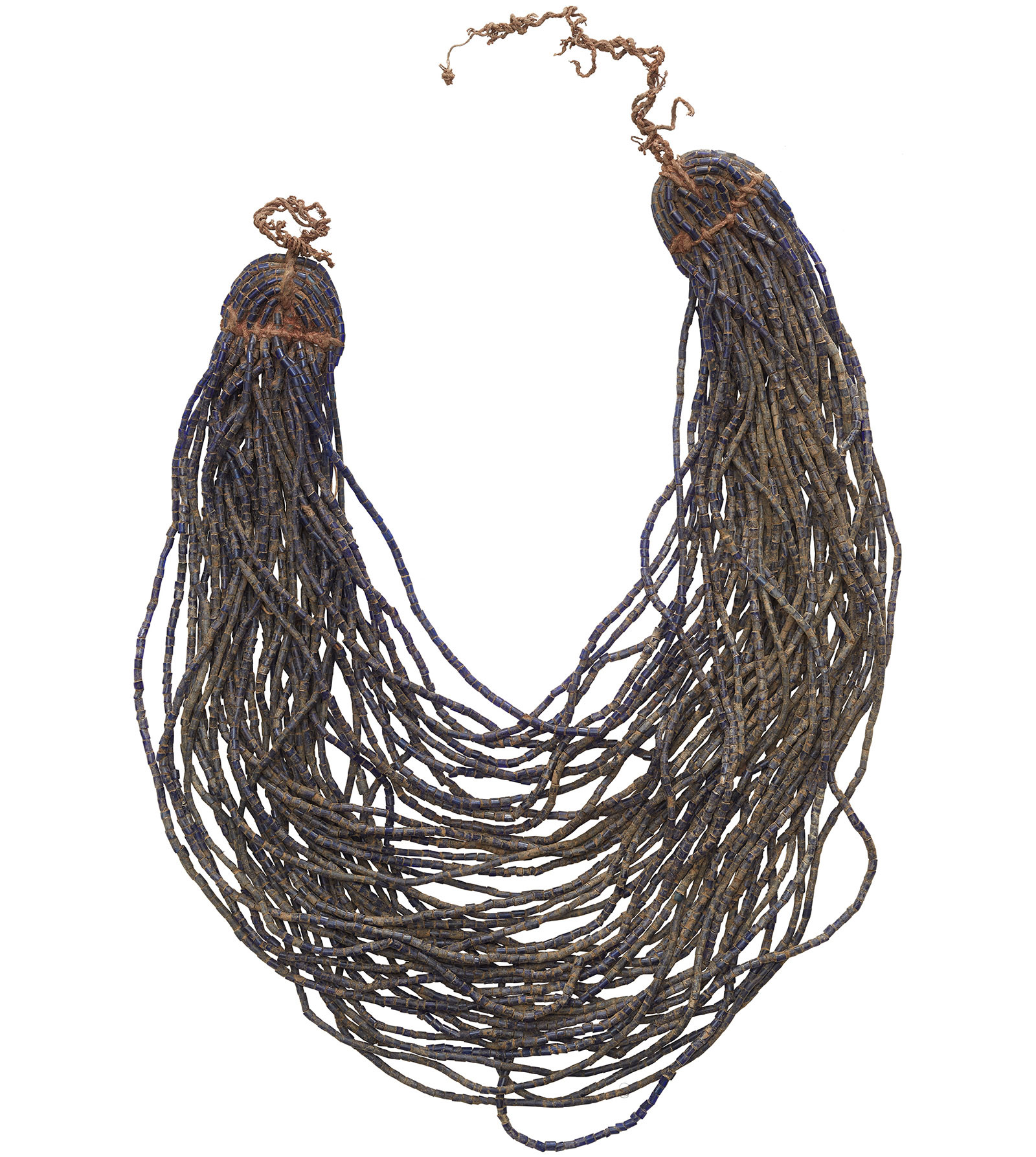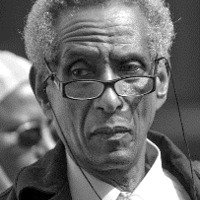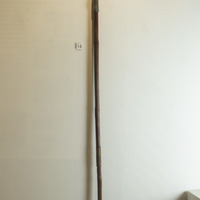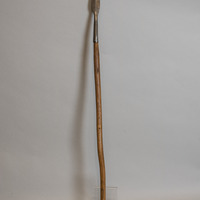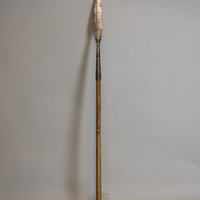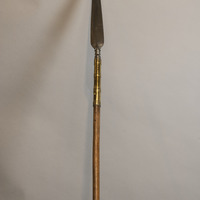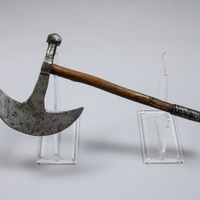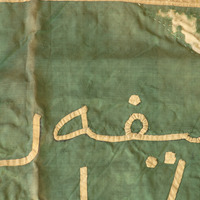A note on the term anṣār
Item
Title
A note on the term anṣār
Creator
Description
Dervishes or anṣār?
The word dervish (Arabic darwīsh, pl. darawīsh) was widely used in the Sudanese context to describe an initiate committed to the ascetic path of the Sufi. As such, a “poor man” acquired merit and the label had very positive spiritual implications. When Muḥammad Aḥmad al-Mahdī led his followers from their base on the White Nile into the Nūba Mountains in August 1881, however, he ordered a change in terminology. Just as this physical move was dubbed a hijra – emulating the Prophet Muḥammad’s own strategic retreat from Mecca to Medina – so too the Mahdī decreed that all those who came to join him at Jabal Qadīr should be styled anṣār, after the Prophet’s earliest followers. This was an astute way of unifying Sufis and non-Sufis, followers of a variety of brotherhoods and potentially rival sheikhs, all under his own banner. A draconian proclamation from as late as April 1884 suggests that this edict took some time to be respected:
“All my beloved and all the faithful have already been notified not to use the label darawīsh for the ansār whose hearts are sharply aware of God and who know that this world is doomed to extinction ... Such a man is not to be called darwīsh. Rather, he should be described as a man of reason and insight, clear-headed and a true supporter of religion. Let him be called sadīq, or righteous, and anyone calling him darwīsh – even by a slip of the tongue – is to be given a punishment of 100 lashes and three days’ fasting.”
For foreigners, the term “dervish” – used in a pejorative sense – remained the default label for Sudanese antagonists, especially in the military context. Throughout the late 188s and 1890s, it was routinely used by propagandists such as Major FR Wingate of British Military Intelligence to denigrate followers of the Mahdī and, later, the Khalīfa ʿAbdullāhi. British soldiers, however, were often moved and impressed by the bravery of their Sudanese adversaries, so many battlefield accounts conveyed a sense of awed admiration – giving a new dignity to the lightly-armed “dervishes” in describing their fearlessness in the face of modern firepower.
“All my beloved and all the faithful have already been notified not to use the label darawīsh for the ansār whose hearts are sharply aware of God and who know that this world is doomed to extinction ... Such a man is not to be called darwīsh. Rather, he should be described as a man of reason and insight, clear-headed and a true supporter of religion. Let him be called sadīq, or righteous, and anyone calling him darwīsh – even by a slip of the tongue – is to be given a punishment of 100 lashes and three days’ fasting.”
For foreigners, the term “dervish” – used in a pejorative sense – remained the default label for Sudanese antagonists, especially in the military context. Throughout the late 188s and 1890s, it was routinely used by propagandists such as Major FR Wingate of British Military Intelligence to denigrate followers of the Mahdī and, later, the Khalīfa ʿAbdullāhi. British soldiers, however, were often moved and impressed by the bravery of their Sudanese adversaries, so many battlefield accounts conveyed a sense of awed admiration – giving a new dignity to the lightly-armed “dervishes” in describing their fearlessness in the face of modern firepower.
Publisher
Making African Connections
Relation
Rights
© Making African Connections
Linked resources
Filter by property
| Title | Alternate label | Class |
|---|---|---|
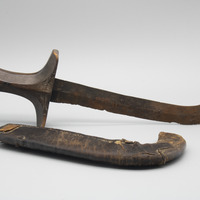 Curved dagger and black leather scabbard Curved dagger and black leather scabbard |
Physical Object | |
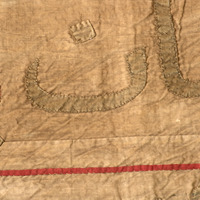 Anṣār (الأنصار) Banner Anṣār (الأنصار) Banner |
Physical Object | |
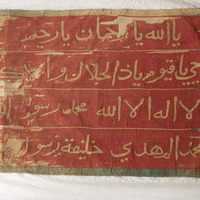 Banner carried by Anṣār (الأنصار) Banner carried by Anṣār (الأنصار) |
Physical Object | |
| The jibba: clothing for Sufi and soldier | Text | |
| Flags of the Mahdiyya | Text | |
| The rātib | Text | |
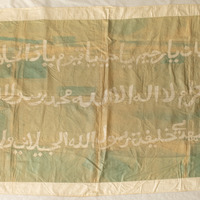 Anṣār (الأنصار) banner Anṣār (الأنصار) banner |
Physical Object | |
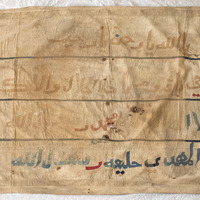 Anṣār (الأنصار) Banner Anṣār (الأنصار) Banner |
Physical Object | |
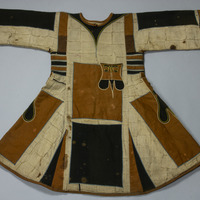 Anṣār (الأنصار) jibba Anṣār (الأنصار) jibba |
Physical Object | |
 Fergus Nicoll Fergus Nicoll |
Text | |
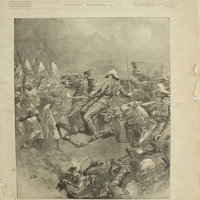 The Graphic The Graphic |
Physical Object | |
| The importance of Mahdism in Sudan and why UK museum's presentation of this history is controversial. | Event | |
| The legacy and perception of Mahdism in Sudan. | Event | |
 ʿUthmān Abū-Bakr Diqna's quilted robe ʿUthmān Abū-Bakr Diqna's quilted robe |
Physical Object | |
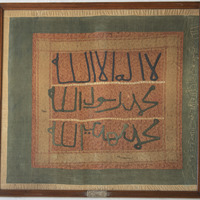 Anṣār (الأنصار) banner Anṣār (الأنصار) banner |
Physical Object | |
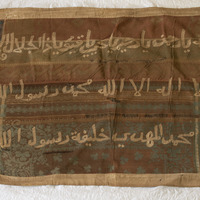 Anṣār (الأنصار) Banner Anṣār (الأنصار) Banner |
Physical Object | |
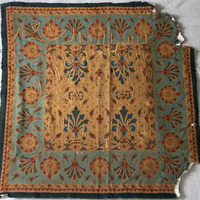 Anṣār banner Anṣār banner |
Physical Object |

